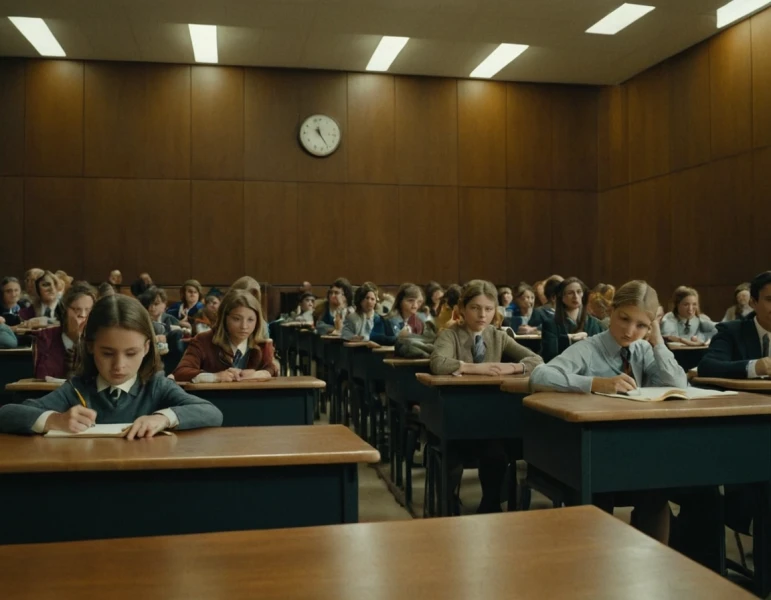Educa UNIVERSITY|EDUCATION
Consejería de Educación News: Everything you need to know for 2024
Related Masters
Consejería de Educación News: Everything you need to know for 2024
Hello, I am Amadeo Pérez. I've been navigating the waters of public education for years, and I've been through the Consejería de Educación more than once. In each administration I have learned a lot about their updates, requirements, and of course, the last-minute changes. Do you want to know what's new this year in Vocational Training (FP), digitization or scholarships? Well, make yourself comfortable.
What is the Ministry of Education?
The Ministry of Education is the institution that regulates and supervises education in each autonomous community in Spain. It not only deals with educational issues in schools, but also with VET, scholarships, inclusion and many other issues that affect the day-to-day lives of students and teachers.

News in Vocational Training: Opportunities for Students and Teachers
This year, one of the stars of the Consejería's news is Dual Vocational Training. Dual FP is revolutionizing the way young people prepare for the labor market by mixing theory and practice in collaboration with companies in the sector. This model not only boosts employability, but also improves the quality of education.
In addition, the creation of Entrepreneurship Classrooms and self-employment projects has been approved in several communities. This means that young people will not only learn the content of their specialty, but also tools to become leaders of their own entrepreneurial initiatives.
These initiatives respond to the high demand from companies seeking qualified personnel in technical and specialized sectors, as indicated by the Regional Ministry.
Digitalization in the Classrooms: Digital Skills and Support Programs
Another key aspect of the new developments is digitalization. As part of the National Digital Capabilities Plan, new learning platforms and teacher training in technological tools will be implemented. This program is focused on integrating technology into the educational process, from the use of tablets in the classroom to the management of digital assessment tools.
In addition, the Ministry has recently announced a series of courses and support tools for teachers with the aim of making educational centers more inclusive and accessible to all students. This movement also supports digital inclusion, ensuring that all students, regardless of their condition or ability, can have access to quality education.
Inclusion and Diversity Support Programs
Inclusive policies are another major focus of the new developments. The extracurricular activities for students with high abilities and those with special educational needs have been reinforced this year. These activities, supported by the Regional Ministry, seek to favor the integration and personal development of these students in collaboration with parents' associations.
There has also been an expansion of scholarship programs and support for families in vulnerable situations. This financial aid covers everything from school supplies to transportation and canteens, helping families to keep their children in the education system.
What Changes Affect Teachers? Announcements, Transfers and More
This year, one of the most eagerly awaited novelties is the transfer competition, which will allow career teachers to apply for changes of center. The provision of positions and job vacancies for teachers in specific specialties has also been expanded, with new opportunities for those with experience in sectors such as music, dance, and languages.
Another important point is the prevention of occupational hazards and continuous training. This aspect has gained special relevance in recent years, with new guides for teaching staff on how to improve their working conditions.
Changes in Admission: New Regulations for Schools and Conservatories
In addition, the Regional Ministry has updated the admission regulations for specific centers, such as Art Schools and Music Conservatories. This change facilitates access to these centers through the publication of vacancies and updated waiting lists, offering interested students a clear pathway to enroll.
Innovative Projects: Erasmus+ and Other International Programs
Internationalization also continues to boom. Programs such as Erasmus+ offer mobility opportunities for students and faculty. The Regional Ministry promotes learning abroad through agreements with European institutions. In addition, partnerships have been created so that students can apply their knowledge in other countries and bring new ideas back to Spain.
What Can We Expect in the Coming Months?
The Consejería de Educación continues to issue updates almost daily, adjusting course according to the needs of students and teachers. And believe me, they won't hesitate to change a rule today and update it tomorrow if they see they can improve something in the process.
So, if you're in the education world or just interested in the subject, keep up with news from the Consejería de Educación. This is changing fast, and it's better to be informed than to be left out of the loop.
Faculties
Trainings
The faculties embrace diverse academic disciplines and fields of study, opening doors to new perspectives and exploring different spheres of wisdom in a constantly evolving world.
Legal Notice • Enrollment Conditions • Privacy Policy • Cookie Policy• Copyright @ 2024 • Educa University
Powered by














